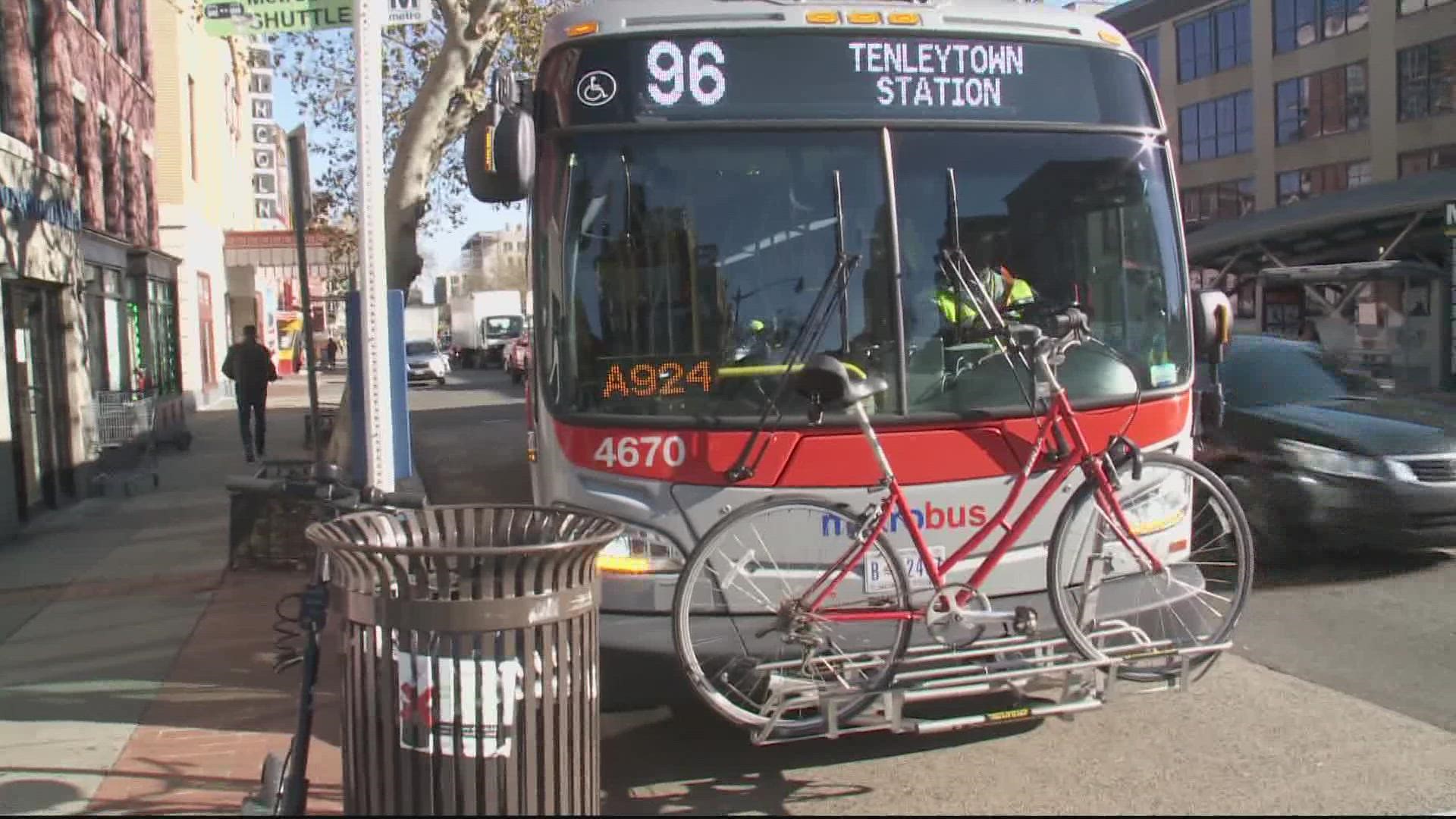WASHINGTON — Riding Metro buses is about to get a bit more efficient --and affordable --after a unanimous vote by the DC Council Tuesday.
The road to free bus rides in D.C. was officially passed with a 13-0 vote by councilmembers, meaning by summer 2023, all buses in the District will be free for residents and visitors.
We heard from several viewers wanting to understand what is covered under the Metro For D.C. Amendment Act of 2022. We're breaking down everything covered in the bill, including the 12 major bus lines that will operate on a 24-hour schedule and funds designated for upgraded services for Metro.
THE QUESTION
What will the "Metro for DC Amendment Act of 2022" change for bus riders?
THE SOURCES
WHAT WE FOUND
First of all, what is the cost of the newly passed legislation and who is footing the bill?
Chairman Mendelson attached a $43 million price tag to the bill in the next fiscal year for D.C. taxpayers. The cost will increase by 5% every year after. A $10 million Transit Equity Fund was allocated, aimed at improving reliability, such as making 12 of the city's busiest bus routes operate 24 hours a day.
What if you get on a bus in Maryland or Virginia, or a circulator bus?
Trips originating outside the District will still require a fare. However, any trip that starts in D.C. would be free, even if the trip ends in Maryland or Virginia. DC leaders said Tuesday they hope lawmakers in Maryland and Virginia will follow suit.
The DC Department of Transportation-operated Circulator buses operate separately and will continue to cost $1 per trip.
Is D.C. be the first place in the US to do this?
While the bill has touted D.C. as being the "first major city" to offer free bus service, how you define a major city may say otherwise. Kansas City, Missouri, was previously lauded as the first when it launched a fare-free bus ridership program in 2020. Analysis from the Mid-America Regional Council found Kansas City's free transit has been more resilient in ridership than comparable systems.
Why was the bill proposed?
Chairman Mendelson and Councilman Alan said the bill hopes to make bus services faster, increase bus ridership, reduce road congestion, eliminate fare evasion, and be more reliable without people having to stop and pay a fare.
What is the status of the proposed $100 SmartTrip subsidy?
The bill originally proposed covering up to $100 dollars per month in Metrorail rides for District residents. But on Monday, Chairman Mendelson said it became apparent the subsidy program would be complicated and expensive.
"Implementation of that is put off several years, so it's almost like that's a placeholder in this bill," Mendelson said.

